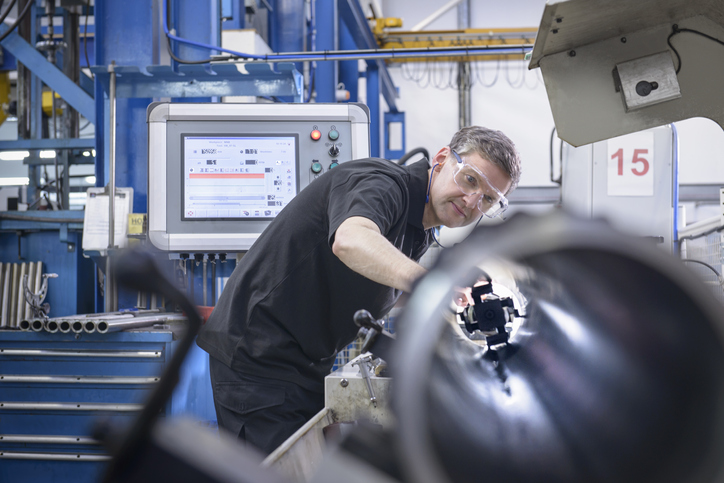Is A Metal Fabrication Career Your Next Move?

Whether you’re considering a career change or just starting out in the workforce, you may be wondering if a metal fabrication career is the right path for you. Metal fabricating offers a wide range of exciting opportunities, you could be designing and building custom metal products one day, then welding and cutting materials the next. At C&C Fabrications, we know first-hand just how rewarding a career in metal fabrication can be. So, let’s explore why this field is worth considering and what you can expect from a role in metal fabrication.
What is metal fabrication?
Metal fabrication is a way of forming products or structures via processes such as welding, cutting, bending, and assembling. Fabricators often start with stock metal components, such as sheet metal, metal rods and metal bars to create a new product. It can be utilised to create an aesthetically pleasing end product, allowing it to look good without limiting functionality. Not only this, but it is also useful for durability purposes, due to its resistance to high temperatures. This means the metal doesn’t damage when being modified and it will be able to withstand harsher environments, lasting longer.
The benefits of a career in metal fabrication
According to the Annual Manufacturing Report, British Manufacturers are facing the largest shortage of skilled workers since 1989, and metal fabrication is no exception. Due to skilled workers retiring faster than new workers entering the industry, there are fewer people who can do it. As a result, metal fabricators have the potential for job security and competitive salaries, as there is more demand for workers in the industry. Not to mention, all the skills you could learn, such as mechanical skills, teamwork, organisation and communication. Picking up knowledge in different processes of metal fabrication will also aid your skillset as they’re all highly transferable, allowing for flexibility in job opportunities.
The different roles available in metal fabrication
There are many different jobs within metal fabrication, each with different responsibilities and skill requirements. A welder’s job includes using heat and pressure to join different pieces of metal together. Metal fabricators, on the other hand, use a variety of different tools and processes to cut and bend metal, creating structures and parts. They must be able to read engineering drawings and have a good understanding of metalworking principles. A machinist’s job is to operate any of the following machinery: a press brake, laser cutting, CNC, drilling and lathe machines, etc. In addition to the job-specific skills, you also need great organisational skills to coordinate jobs and the team that you’re working with.
Necessary skills and qualifications
There are different routes you can take to train as a fabricator, these depend on your academic/employment background. An Apprenticeship in fabrication can gain you experience in the workplace along with textbook training in fabrication skills, to ultimately achieve a relevant qualification. Another option is a further education qualification such as a Level 3 Diploma in Fabrication and Welding Engineering Technology, which is designed to develop a foundation of skills and knowledge, leading to a career in welding and fabrication. Furthermore, on-the-job training is a good option when moving from a different engineering job role.
Do you think metal fabrication could be your next career move? C&C Fabrications are always happy to receive applications from anyone interested. Email your CV to info@candcfabrications.co.uk



